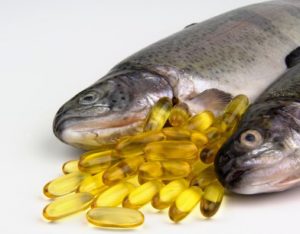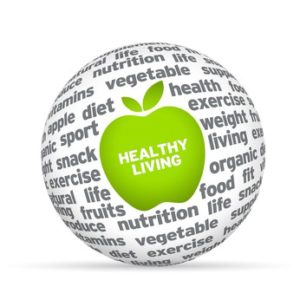What Does Science Say About Depression During & After Pregnancy?
Author: Dr. Stephen Chaney
 Can you help prevent postpartum depression by using omega-3s? Pregnancy and breastfeeding should be a wonderful time in any woman’s life, but sometimes the dark days of depression take hold. Postpartum depression used to be taboo. It was never talked about unless a mother did something terrible enough to make it into the headlines. Nowadays we realize that it is nothing to be ashamed of. In fact, it is fairly common.
Can you help prevent postpartum depression by using omega-3s? Pregnancy and breastfeeding should be a wonderful time in any woman’s life, but sometimes the dark days of depression take hold. Postpartum depression used to be taboo. It was never talked about unless a mother did something terrible enough to make it into the headlines. Nowadays we realize that it is nothing to be ashamed of. In fact, it is fairly common.
The CDC estimates that 11-20% of women will suffer some degree of depression after childbirth. A similar percentage of women will experience prenatal depression (depression during pregnancy). To put these numbers into perspective, 20% of women can expect to suffer depression during their lifetime.
Of course, that doesn’t make prenatal or postnatal (postpartum) depression any easier to understand for any woman who has suffered from it. How could such a joyous time in their lives lead to depression?
The causes of prenatal and postnatal depression are multifactorial. Some, such as genetic predisposition and hormonal imbalances, may be beyond a woman’s control. Others may require medical intervention.
However, many women ask: “Is there something natural, some change in diet and lifestyle, I could undertake that might help with the depression?” This week we will look at a study suggesting that omega-3s might help with prenatal and postnatal depression.
Can Omega-3s Help With Prevent Postpartum Depression?
 There are several reasons for suspecting that omega-3s might help with both prenatal and postnatal (postpartum) depression.
There are several reasons for suspecting that omega-3s might help with both prenatal and postnatal (postpartum) depression.
- Many studies have suggested that omega-3 deficiency is implicated in depression.
- A recent study DHA During Pregnancy reported that pregnant women in the US are only getting around 1/5 the recommended amount of omega-3s from their diet.
- During the second and third trimester, the fetus requires tremendous amounts of omega-3s, particularly DHA, to support its developing brain. This could be another instance of the fetus robbing an important nutrient from the mother’s body.
However, clinical studies to date have been inconclusive. Some have shown a clear correlation between omega-3 deficiency and pre/postnatal depressions. Others have not.
The authors of this study (Lin et al, Biological Psychiatry, doi.org/10.1016/j.biopsych.2017.02.1182 ) did a meta-analysis of all studies measuring both omega-3 status and pre/postnatal depression. They included 12 studies with a total of 7739 women in their analysis. Of the women in the study 1094 (16.6%) suffered with prenatal and/or postnatal depression.
Their findings were:
- Levels of total omega-3s and DHA were significantly lower in the women with prenatal and/or postnatal depression.
- The ratio of omega-6 to omega-3 fatty acids was higher in the women with prenatal and/or postnatal depression.
What Does This Study Mean To You?
 This study showed an association between omega-3 deficiency and depression during the prenatal and postnatal periods. It suggests, but does not prove, that omega-3 deficiency predisposes to pre/postnatal depression. So, taking the recommended amounts of omega-3s may help prevent postpartum depression.
This study showed an association between omega-3 deficiency and depression during the prenatal and postnatal periods. It suggests, but does not prove, that omega-3 deficiency predisposes to pre/postnatal depression. So, taking the recommended amounts of omega-3s may help prevent postpartum depression.
If this were the only reason to suggest adding extra omega-3s to your diet during pregnancy and lactation, it might not be sufficient to spur you to action. However, recent studies suggest that increasing your omega-3 intake during pregnancy and breastfeeding is also important for your child’s brain development. Thus, there are at least two important reasons to make sure your omega-3 intake is optimal during pregnancy and breastfeeding.
It is important to recognize that increasing your omega-3 intake may not be sufficient to cure pre- and postnatal depression by itself. It is probably best as part of a holistic approach. You should also:
- Make sure you are getting adequate B vitamins (especially folic acid, B6 and B12). Clinical studies have also linked deficiencies of these nutrients with depression.
- Make sure your protein intake is sufficient and limit sugars and simple carbohydrates. This helps stabilize blood sugar swings that can affect your mood.
- Keep caffeine to a minimum and avoid alcohol.
- Employ stress reduction techniques such as yoga, meditation, or conversations with friends.
Of course, there is nothing radical about any of these recommendations. These are the same recommendations every pregnant mother is being given for the health of their baby. For example, the importance of folic acid has been recognized for decades. The importance of omega-3s for your child’s brain development has received increasing recognition in recent years.
Finally, if natural approaches don’t work, consult your physician.
The Bottom Line
- A recent meta-analysis has shown an association between omega-3 deficiency and both prenatal and postnatal depression.
- That is significant in light of a recent study showing that pregnant women in the US are getting only 1/5 the recommended amount of omega-3s from their diet.
- This study showed an association between omega-3 deficiency and depression during the prenatal and postnatal periods. It suggests, but does not prove, that omega-3 deficiency predisposes to pre/postnatal depression.
- In addition, recent studies suggest that increasing your omega-3 intake during pregnancy and breastfeeding is also important for your child’s brain development. Thus, there is more than one reason to make sure your omega-3 intake is optimal during pregnancy and breastfeeding.
- Increasing your omega-3 intake may not cure pre/postnatal depression by itself. It is probably best as part of a holistic approach. You should also:
- Make sure you are getting adequate B vitamins (especially folic acid, B6 and B12).
- Make sure your protein intake is sufficient and limit sugars and simple carbohydrates.
- Keep caffeine to a minimum and avoid alcohol.
- Employ stress reduction techniques such as yoga, meditation, or conversations with friends.
- There are many other things that can contribute to depression. If natural approaches don’t work, you should consult your physician.
- For more details, read the article above.
These statements have not been evaluated by the Food and Drug Administration. This information is not intended to diagnose, treat, cure or prevent any disease.
